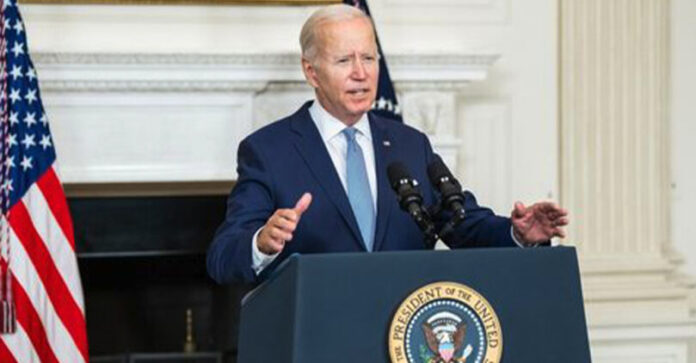
By Stacy M. Brown, NNPA Newswire Senior National Correspondent
After months of uncertainty and verbal sparring, an “agreement in principle” has been reached to spare the United States from its first-ever debt default.
But now comes the hard part: convincing both Democrats and Republicans in Congress to agree to pass the measure.
After President Joe Biden and House Speaker Kevin McCarthy announced that they’d reached an accord to raise the nation’s debt ceiling and avoid a catastrophic default, Congress has just a few days to approve the deal.
But multiple conflicting reports have suggested that members on both sides of the aisle might have enough issues with the deal that it could fail to pass.
Democrats have said work requirements for food stamp recipients were a non-starter.
GOP members have sought to curtail spending, even after former Republican President
Donald Trump went unchecked in adding trillions to America’s debt during his four years.
The Biden administration had managed to cut into the estimated $31 trillion in federal debt while attempting to strengthen social safety net programs like food stamps, social security, and benefits for veterans, the elderly, and disabled.
Treasury Secretary Janet Yellen had announced a deadline of June 5 before the government would default on its debts.
While Democrats were expected to gather for a call on Sunday, May 28, McCarthy expressed confidence that his party would sign off on the package.
“At the end of the day, people can work together to be able to pass this,” the Speaker stated.
The agreed-upon 2-year deal keeps spending for 2024 at the same levels as 2023 and increases by 1% in 2025.
The agreement increases the age for work requirements for “able-bodied adults,” without children, from 49 to 54.
However, veterans and people experiencing homelessness are exempt.
The deal also changes the National Environmental Policy Act, which will assign a single lead agency to develop environmental reviews to streamline the process.
“The agreement represents a compromise, which means not everyone gets what they want,” Biden said.
“That’s the responsibility of governing.”
The president called the deal “good news for the American people because it prevents what could have been a catastrophic default and would have led to an economic recession, retirement accounts devastated, and millions of jobs lost.”
McCarthy acknowledged that the deal didn’t accomplish everything the GOP wanted.
However, he claimed that House Minority Leader Hakeem Jeffries told him there was nothing in the bill for Democrats.
McCarthy alleged that Jeffries said, “There’s not one thing in the bill for Democrats.”
However, following the deal’s announcement, Jeffries tweeted his thanks to Biden for reaching an agreement.

